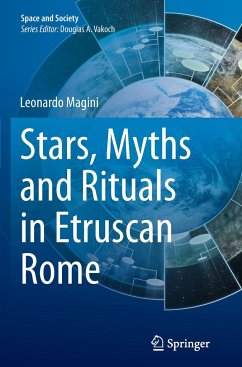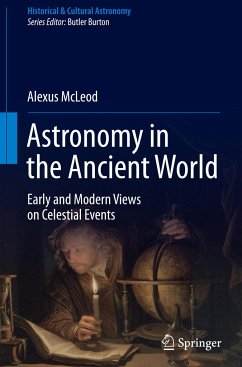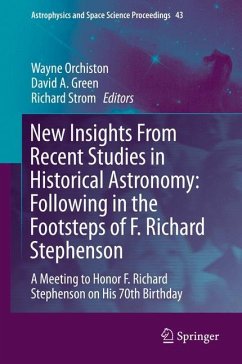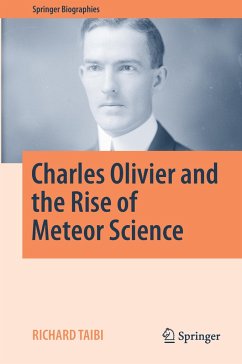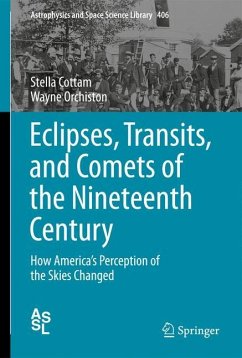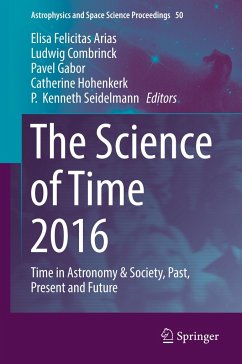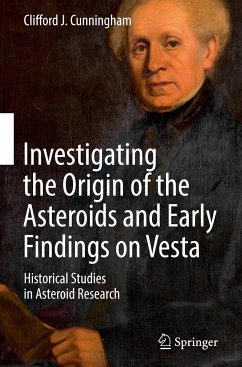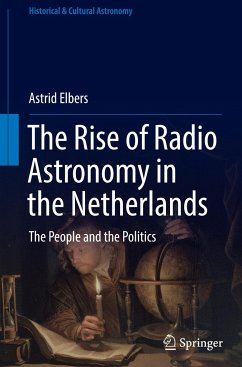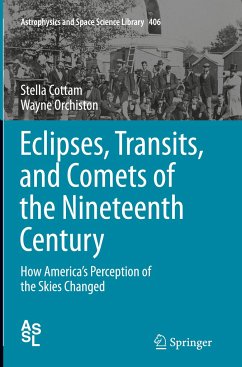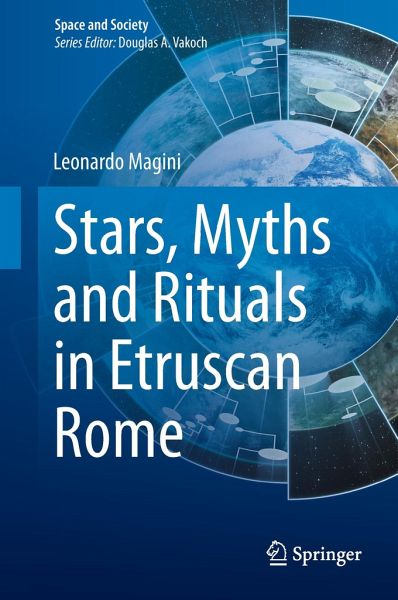
Stars, Myths and Rituals in Etruscan Rome
Versandkostenfrei!
Versandfertig in 6-10 Tagen
76,99 €
inkl. MwSt.
Weitere Ausgaben:

PAYBACK Punkte
38 °P sammeln!
This book offers a detailed and fascinating picture of the astonishing astronomical knowledge on which the Roman calendar, traditionally attributed to the king Numa Pompilius (reign 715-673 B.C.), was based. This knowledge, of Mesopotamian origins, related mainly to the planetary movements and to the occurrence of eclipses in the solar system. The author explains the Numan year and cycle and illustrates clearly how astronomical phenomena exerted a powerful influence over both public and private life. A series of concise chapters examine the dates of the Roman festivals, describe the related ri...
This book offers a detailed and fascinating picture of the astonishing astronomical knowledge on which the Roman calendar, traditionally attributed to the king Numa Pompilius (reign 715-673 B.C.), was based. This knowledge, of Mesopotamian origins, related mainly to the planetary movements and to the occurrence of eclipses in the solar system. The author explains the Numan year and cycle and illustrates clearly how astronomical phenomena exerted a powerful influence over both public and private life. A series of concise chapters examine the dates of the Roman festivals, describe the related rites and myths and place the festivals in relation to the planetary movements and astronomical events. Special reference is made to the movements of the moon and Venus, their relation to the language of myth, and the particular significance that Venus was considered to have for female fertility. The book clearly demonstrates the depth of astronomical knowledge reflected in the Roman religiouscalendar and the designated festive days. It will appeal both to learned connoisseurs and to amateurs with a particular interest in the subject.





